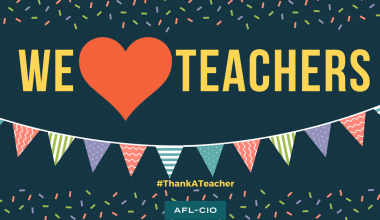The sphere of education is constantly evolving and implementing new progressive ways of interaction between tutors and students.
But last year, the coronavirus pandemic and lockdown could transform the approach to education in record time – universities, schools and educational platforms switched to telecommuting. And it is 1.6 billion students worldwide. Online learning will finally become the new norm of education.
Society is on the verge of changing the whole system – new educational products will increasingly be based on data analysis and digital technologies.
But one thing will remain the same, and it is a tutor-student relationship. Why is it important for a student to build a healthy connection with a tutor? For this, you need to know the main values of a modern student and what feedback a positive interaction with a teacher can bring.
A portrait of a Z-student
The theory of generations, which appeared in the early 1990s, claims that about every twenty years, a new generation is born, which has special values, interests, traits and ideals. Even if today’s students cannot be called a homogenous group, most of them belong to the Z generation, also called centennials. The world transformations leave a considerable imprint on each new generation. Digitalization is the main factor affecting the Gen Z representatives.

They have already been born into the digital world. They cannot imagine themselves without a mobile phone or modern gadgets, they already know and can do a lot. It is a rapidly growing generation, maturing at a rapid pace, with many geniuses among them. They are brought up on information technology, quickly process information and are guided by innovative developments.
The main features of a Z student:
- Clip thinking, when any information is absorbed quickly, but in small portions;
- Poorly developed communication skills in comparison with other generations, which is explained by an active virtual life;
- Hyperactivity;
- A tendency to constant self-development and gaining new knowledge.
These qualities often contradict conservative tutors consequently affecting the educational progress.
Why tutor-student relationships matter?
It is not a secret that with each generation, it becomes more difficult to build trustful and friendly relationships between students and tutors. Students often complain about burdening homework assignments. They are simply bored during classes and think only about the moment when classes are over and they can finally be free.
Teachers find it extremely difficult to interest centennials in their subject. Tutors must constantly change, grow and adapt with the students as their identity will be always evolving.
So it is vital to create a healthy psychological climate between the teacher and students. Otherwise, the consequences are pitiful:
- If a student is constantly criticized, he learns to hate;
- If a student studies in an atmosphere of hostility he becomes aggressive;
- If a student is scoffed at, he becomes sullen.
And the friendly attitude has the opposite result:
- If a student is praised, his motivation grows;
- If the student is supported, he begins to believe in himself;
- If the student works in a friendly environment, his academic performance improves.
How to improve relations with a tutor?
Almost every student at least once faced conflict situations and difficulties with teachers. What to do if a tutor does not seem to like you and creates additional problems with your studies? Try to follow these simple rules:
- Make sure you know the name of the teacher and pronounce it correctly. Nobody likes when his name is forgotten or distorted.
- Be a passionate student. If a person is interested in a subject, then the tutor’s attitude to such a student will be appropriate. Ask questions and make relevant comments.
- Do not criticize your tutor. Even the most unbiased teachers react negatively to criticism from students.
- Avoid controversy. If you’re wrong, admit it confidently and without unnecessary emotional overload. Even if you are right, just express your point of view calmly, without trying to prove something.
- Remain polite in any situation. A welcoming smile and a hearty greeting can solve many problems.
- Be responsible. Submit your assignments on time. Even if you did not meet the deadline, explain to the teacher why it did not work out.
- Never show laziness or indifference. These two things are never acceptable in the educational process.
The main thing is to remember that even the sternest teacher was once a student himself. It means that he knows all student’s tricks very well, and he probably used them himself. Therefore, you should not try to deceive the teacher – in most cases, you will not succeed.
What can a tutor do to engage a Z student?
The main aspect of the modern education process is the use of technology. The tutors should look for new ways of assessing knowledge and presenting materials to Gen Z students. Here are some ideas from the best teachers of Preply English tutoring:
- Short online quizzes. This assessment method will not leave modern students indifferent. It will work especially well when they are allowed to use their smartphones.
- Group work. Today’s students prefer to work in small groups. This approach allows them to be more creative. The main idea is to ask students to organize the project in the way they like. They will highly appreciate this freedom.
- Activities. Research shows that the attention of buzzers quickly dissipates. To cope with this, tutors may ask students to periodically write short summaries of covered material. It will help to figure out which topics should be revisited.
- Games. Most Gen Z students are gamers and enjoy game challenges. This method is very effective when memorizing new material, and it also allows students to share knowledge. They can become more active and focus on the process.
- Care and feedback. These are vital elements of student-tutor relationships. With a caring teacher, students become more involved in the learning process. Positive feedback and support motivate them to improve their results. Positive attitude and approval change people for the better, and tutors need to implement these into communication with students.
Conclusion
It can be summed up that relations between students and tutors are quite multifaceted. People are all different, and their requirements and expectations towards others are also different. However, if students and tutors at least try to meet each other halfway, then there is a high probability of establishing understanding and respect.
Successful student-tutor relationships are mutually beneficial. Students receive quality knowledge and learn from a good teacher, and teachers enjoy working with motivated students. It will inevitably bring fruitful results to both parties.
Eliza Medley is an experienced writer and psychologist. She is actively interested in management, new technologies, and writing motivational articles. And also trying to go with time with modern trends. Inspires people with her work to learn new things and reach new heights.
Follow @Eliza_Medley on Twitter.
DISCLOSURE: This post may contain affiliate links, meaning when you click the links and make a purchase, we receive a commission.





1 comment
Comments are closed.